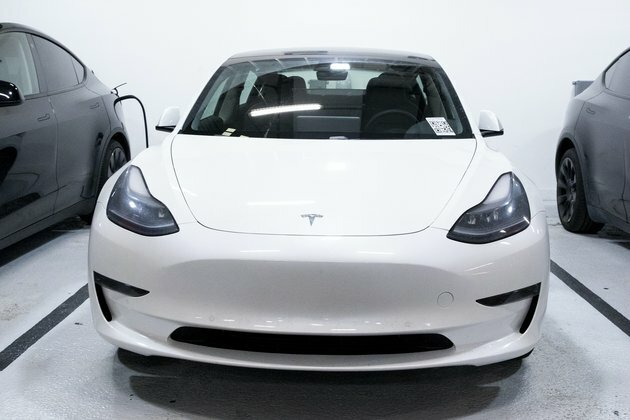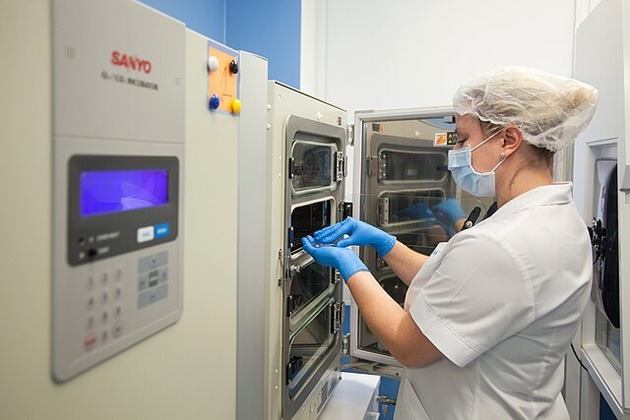How the world ran out of semiconductors
The Conversation
05 Mar 2021, 18:13 GMT+10

There's a global shortage in semiconductors, and it's becoming increasingly serious. The US is currently reviewing of its supply of the technology, following a landmark executive order from President Joe Biden.
The president also pledged US$37 billion (Pound 26 billion) to cover the short-term costs of rebuilding and securing America's supply of semiconductors, which are a fundamental part of microchips and thus integral to everything from computers to smartphones to renewable energy and military hardware.
The automotive sector has been worst affected by the drought, in an era where microchips now form the backbone of most cars. Ford is predicting a 20% slump in production and Tesla shut down its model 3 assembly line for two weeks. In the UK, Honda was forced to temporarily shut its plant as well.
Even highly experienced tech companies such as Nvidia and Microsoft are struggling to provide a steady stock of graphics cards and Xboxes respectively. It appears that no company, big or small, tech or non-tech, is safe from the wide-ranging impact of the great semiconductor famine of 2021.
The concentration problem
While it is easy to blame the COVID-19 pandemic for this situation, the truth is that the global semiconductor supply chain had this coming for some time. As much as 70% of the world's semiconductors are manufactured by just two companies, Taiwan Semiconductor (TSMC) and Samsung.
The entry barriers into semiconductor manufacturing are astronomically high. There's a steep learning curve required to set up a semiconductor foundry, entailing an upfront investment of US$10-$12 billion and then at least three years to become production-ready.
Even then, there are no guarantees that a new foundry's chip yields will match those of the incumbents. Chips rapidly become obsolete and price pressures are a major problem in the tech sector, so there are lots of risks to profitability.
Due to such harsh economics, it has only made sense for a handful of large players to invest in manufacturing capabilities and then spread those costs and risks across hundreds of thousands of customers. Global tech has historically been very happy to hand the manufacturing reins to TSMC and Samsung. And in turn, this has created the supply-chain equivalent of a house of cards.
High demand
The pandemic has driven unexpectedly high demand for home electronics such as laptops and gaming consoles, as many people started working from home and seeking more sources of indoor entertainment.
Automotive companies had been expecting lower demand, given that car sales tend to move lower in an economic downturn. This, however, proved to be an erroneous assumption, as new car sales started bouncing back quickly by the tail end of 2020. Automotive companies tried to re-book previously cancelled semiconductor orders only to discover that home electronics manufacturers had taken their place.
At the same time, President Trump's trade war with China led to new rules that made it harder for Chinese companies to source semiconductors from TSMC and Samsung. With China's own semiconductor technology inferior to the industry leaders, Chinese tech behemoths like Huawei stockpiled semiconductor chips in advance of the new restrictions in 2020, soaking up any spare capacity with large orders.
But the straw that finally broke the proverbial camel's back was the sharp rise in bitcoin prices in early 2021. This increased the demand for the graphics processing units that are traditionally used in mining the digital currency, exacerbating the semiconductor supply issues further.
All of this has been enough to cause TSMC and Samsung to run out of capacity and significantly increase lead times to fulfil orders, leading to the drought we see today.
Who loses
The share prices of TSMC and Samsung have risen by 190% and 61% respectively in the past 12 months thanks to the supply shortfall. Despite President Biden's best efforts, the situation is unlikely to improve in the next three years because of all the barriers to entry in this sector.
Prices of consumer electronics have shot up, thanks to scalpers who routinely buy graphics cards and consoles at recommended retail prices and sell them for higher prices on sites like eBay.
It is only a matter of time before tech manufacturers and retailers decide to increase prices to match the high demand and low supply of the components. Expect to see releases of more expensive variants of existing electronic products hitting the market soon.
Just like in an actual famine, the end consumers of these goods are going to be significantly worse off, with little or no respite coming their way.
Author: Hamza Mudassir - Visiting Fellow in Strategy, Cambridge Judge Business School 
 Share
Share
 Tweet
Tweet
 Share
Share
 Flip
Flip
 Email
Email
Watch latest videos
Subscribe and Follow
Get a daily dose of Perth Herald news through our daily email, its complimentary and keeps you fully up to date with world and business news as well.
News RELEASES
Publish news of your business, community or sports group, personnel appointments, major event and more by submitting a news release to Perth Herald.
More InformationInternational Business
SectionShein hit with 40 million euro fine in France over deceptive discounts
PARIS, France: Fast-fashion giant Shein has been fined 40 million euros by France's antitrust authority over deceptive discount practices...
Over 60 companies named in UN report on Israel-Gaza conflict
GENEVA, Switzerland: A new United Nations report alleges that dozens of global corporations are profiting from and helping sustain...
Persson family steps up H&M share purchases, sparks buyout talk
LONDON/STOCKHOLM: The Persson family is ramping up its investment in the H&M fashion empire, fueling renewed speculation about a potential...
Australian PM rejects US pressure to ease biosecurity rules
SYDNEY, Australia: Australia will not ease its strict biosecurity rules during trade talks with the United States, Prime Minister Anthony...
Haryana to develop Asia's largest jungle safari in Aravalli Hills
New Delhi [India], July 6 (ANI): A grand jungle safari project coming up in the Aravalli Hills is going to redefine Haryana's identity....
"Every flight feels heavier now....": Raashii Khanna says she finds it hard to travel after Air India tragedy
Mumbai (Maharashtra) [India], July 6 (ANI): The tragic Air India crash in Ahmedabad last month has left many shaken, including actor...
Australia
SectionUN Demands End to Myanmar Violence as Junta’s Election Plans Risk Further Instability
Nearly three months after a devastating earthquake struck Myanmar, the country remains trapped in a deepening crisis, compounded by...
Fresh IVF error raises alarm over clinic safety and oversight
MELBOURNE, Australia: A second embryo mix-up in just two months has pushed one of Australia's largest IVF providers back into the spotlight,...
Australian PM rejects US pressure to ease biosecurity rules
SYDNEY, Australia: Australia will not ease its strict biosecurity rules during trade talks with the United States, Prime Minister Anthony...
Lando Norris wins, Nico Hulkenberg makes history at British GP
(Photo credit: Eric Bolte-Imagn Images) McLaren's Lando Norris won his first British Grand Prix -- his home-country event -- in a...
Taylor Fritz moves into Wimbledon quarter-finals after Thompson retires
London [UK], July 6 (ANI): Taylor Fritz has reached the Wimbledon quarter-finals for the third time after his fourth-round opponent,...
'A defiant stand': histories of Australia's frontier wars are revealing their true complexity, but there's more to be done
Historian Stephen Gapps' latest book, Uprising: War in the Colony of New South Wales, 1838-1844, describes a coordinated Aboriginal...












